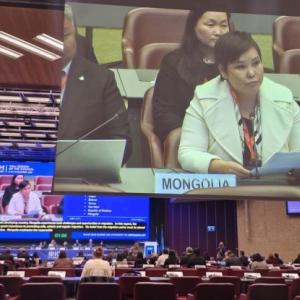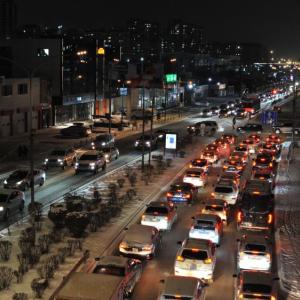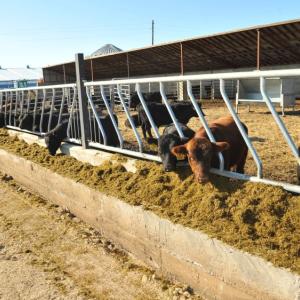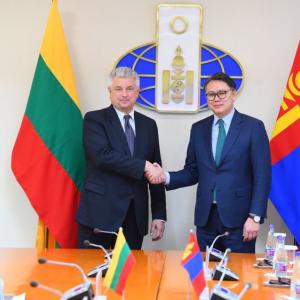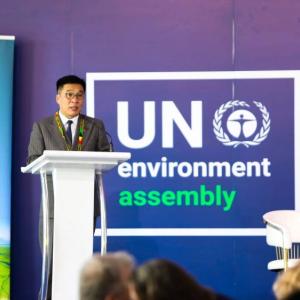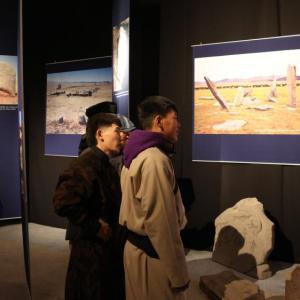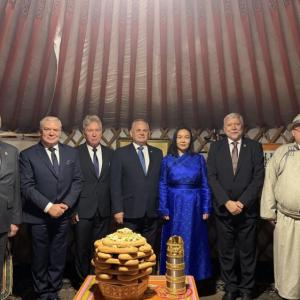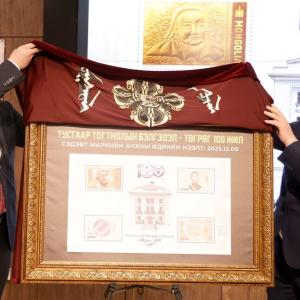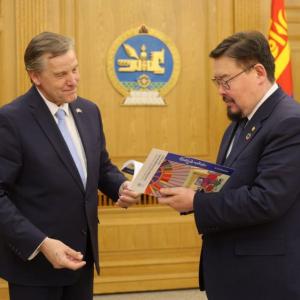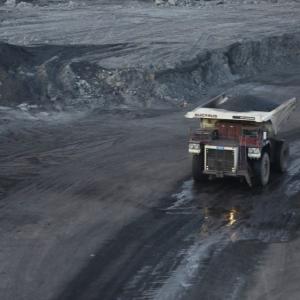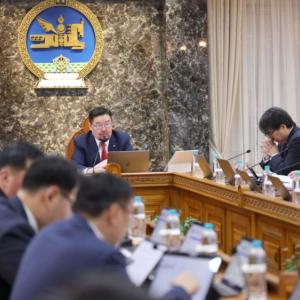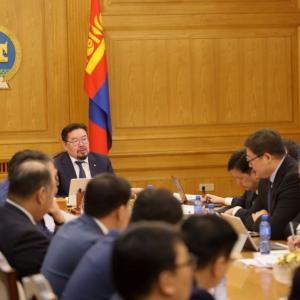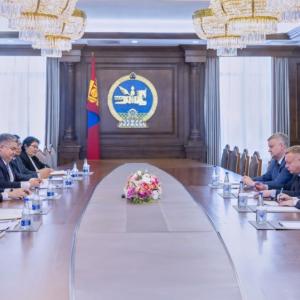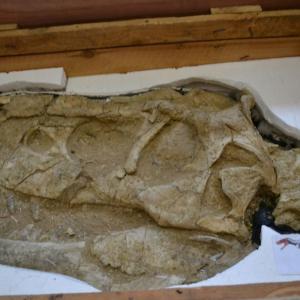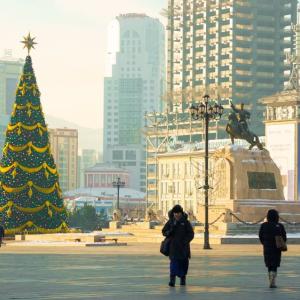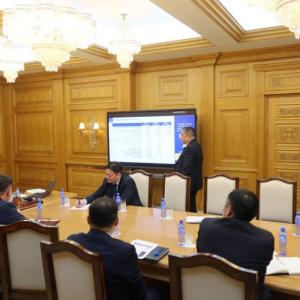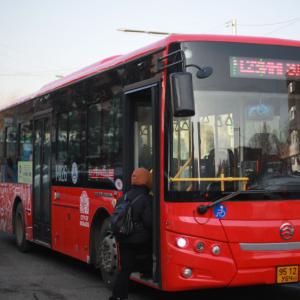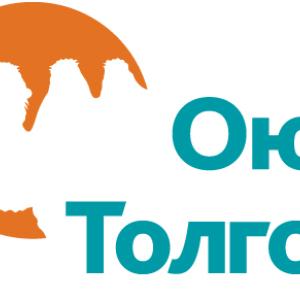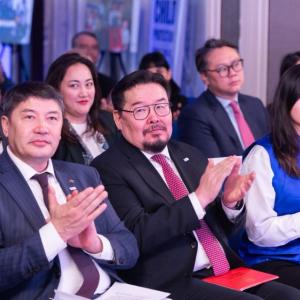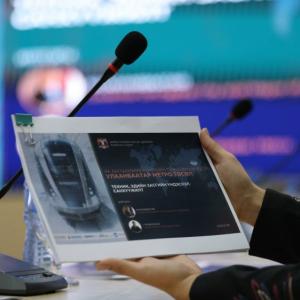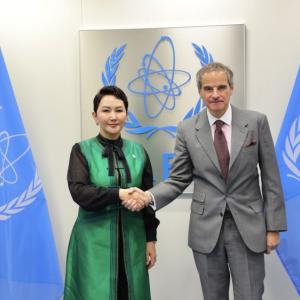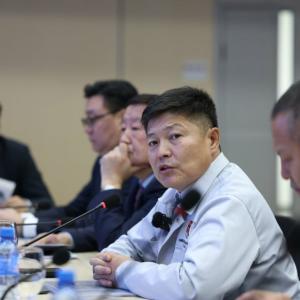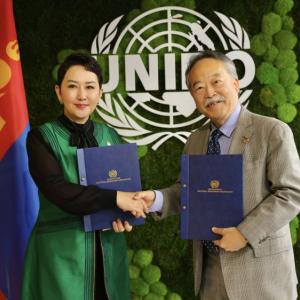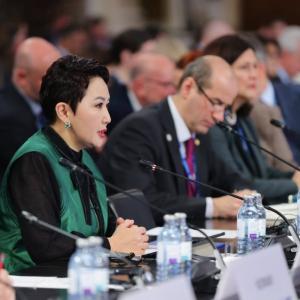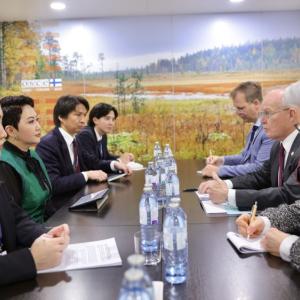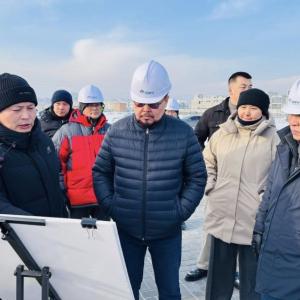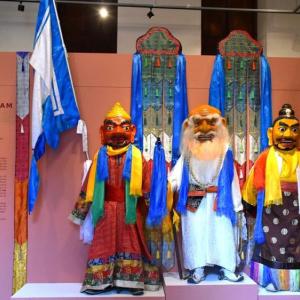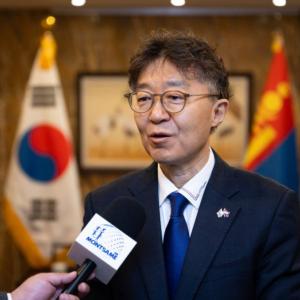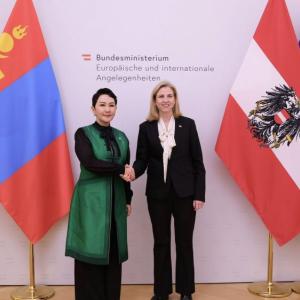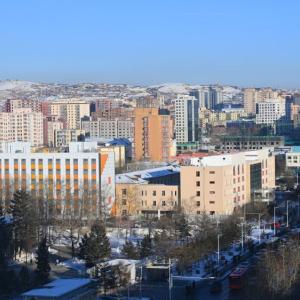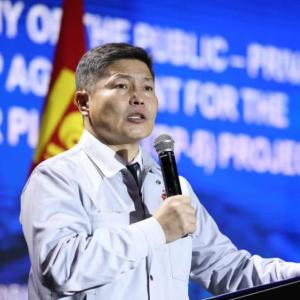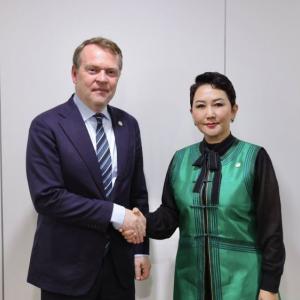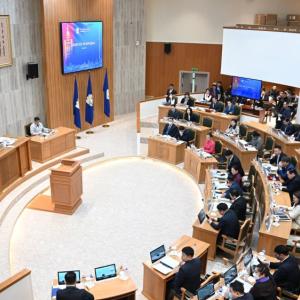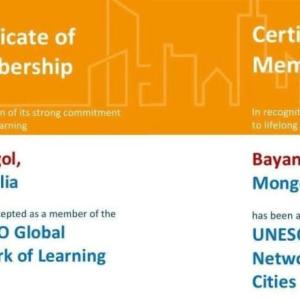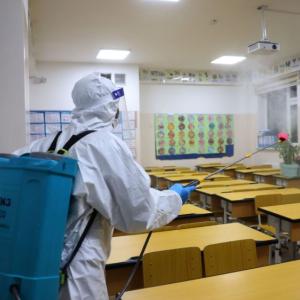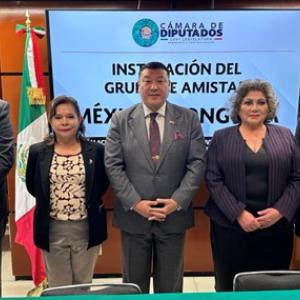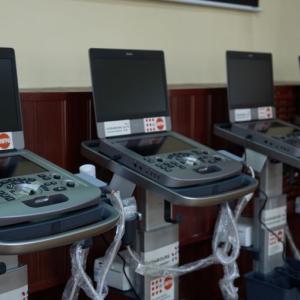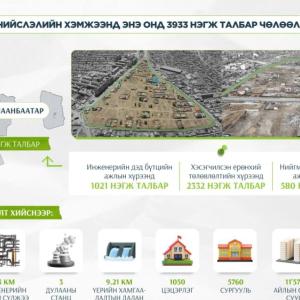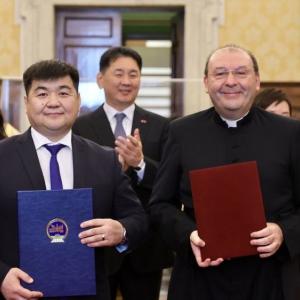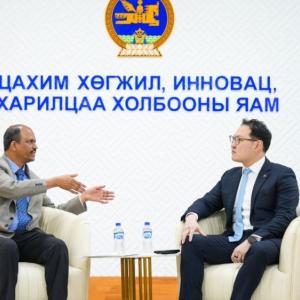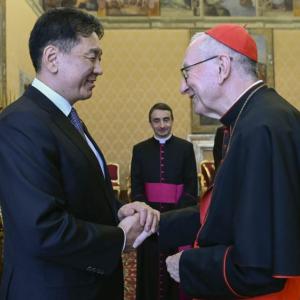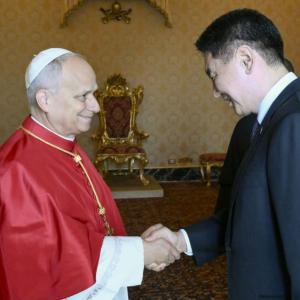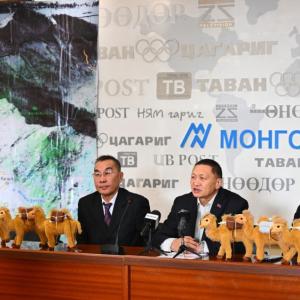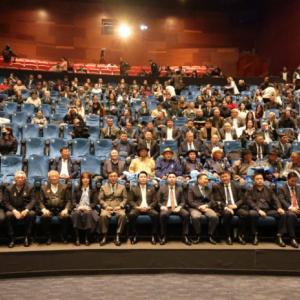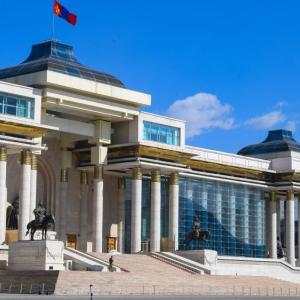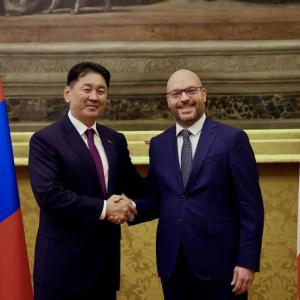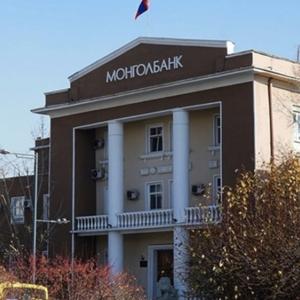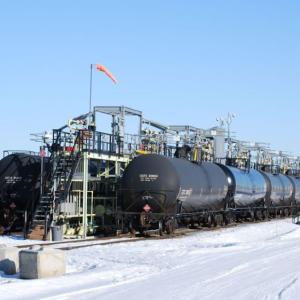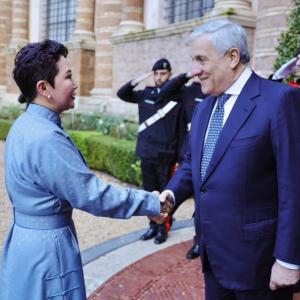Government pledges to intensify fight against air pollution
The Mongol Messenger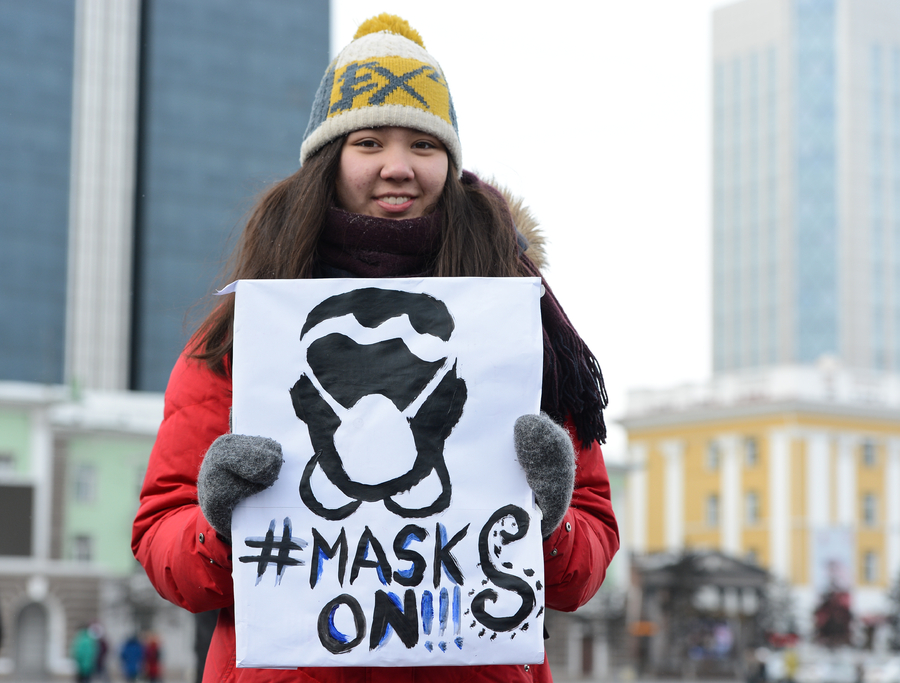
Mongolia’s long winter leaves the capital city in gray smog for at least 3 full months and air pollution is one of the most pressing issues the city of over one million faces today.
The last 24-hour average of fine particulate matter (PM2.5) levels ranged from 132-620 microgram per cubic meter in various spots in the capital city on January 2, according to an air quality monitoring website operated by Air Quality Department of the capital city.
Since the major contributing factor to air pollution in the capital city is smoke produced in ger areas where various materials including raw coal are burned for heat, residents of Bayankhoshuu suffer from alarming levels of polluted air. Although the least smog-affected areas are Amgalan and Nisekh with about 130 microgram per cubic meter, it is still almost three times higher than the safe level which is 50.
Public awareness on the seasonal but serious issue has been growing stronger and stronger in recent years, demanding more resolute action from the Government. Last winter, a movement called ‘Booj Uhlee’ or ‘We are suffocating’ was initiated by parents concerned about the serious impact of air pollution on their children’s health, and peaceful demonstrations were held, attracting crowds of about 5,000. ‘Parents Against Smog’ NGO, which was formed last year in the wake of increasing levels of PM2.5, continues to operate.

As public demand to address air pollution effectively intensify, the Government and capital city authorities have been taking a set of measures towards reducing the amount of smog. For instance, the capital city administration recently extended its suspension on migration from provinces to 2020. Last year, Mayor S.Batbold halted migration in hopes of preventing expansion of ger areas in the capital city.
Last year, the Cabinet introduced a night-time electricity discount for households in ger areas with a budget of MNT 9 billion which continues this year. Moreover, a National Committee on Air Pollution Reduction led by the Prime Minister was set up last year and later expanded to a National Committee on Environmental Pollution Reduction. On December 13, 2017, the Committee held a year-end meeting, during which it resolved to intensify the removal of steam boilers, increase energy sources, introduce technological innovation in government-run buildings and facilities, increase the number of air quality monitoring stations, provide processed fuel to target groups and run a campaign on reducing heat loss.
On March 20, 2017, the Cabinet approved a National Program on Reduction of Air and Environmental Pollution, which aims to decrease pollutants by 80 percent, completely prohibit the use of unprocessed coal in areas except thermal power plants in Ulaanbaatar, and reduce air and environmental pollution by at least 50 percent by 2025. A fund of MNT17 billion was projected in the 2018 State Budget to reduce air pollution.
While criticizing the fact that air quality in the capital city hasn’t noticeably improved despite spending MNT147 billion from the budget and USD 60 million in foreign investment in 2008-2016, Prime Minister and Head of the National Committee U.Khurelsukh called for public involvement to combat air pollution in Ulaanbaatar, conveying his Cabinet’s prioritization of actions against air pollution.
Prime Minister U.Khurelsukh has been visiting households and schools in the most heavily polluted areas; and most recently, Head of Cabinet Secretariat G.Zandanshatar oversaw the situation of households living in gers in the Songinokhairkhan and Khan-Uul districts on the first day of 2018, expressing that the Cabinet seeks a comprehensive solution to air pollution.

As the Cabinet works towards realization of the national program, it also targets reduction of health impacts of air pollution with installation of air purifiers in all schools and kindergartens. The Cabinet issued an order to issue air purifiers to all schools, an action with a budget of MNT 4 billion. Starting with schools running in the most polluted points, the safety measure will have reached all schools in early January.
Considering the sharp increase of respiratory diseases among capital city residents, especially children, in winter caused by air pollution, the Cabinet recently decided to issue up to 5-days of paid leave to parents looking after their ill children.
After President Kh.Battulga addressed the issue of overload of patients in hospitals, the Cabinet resolved to allocate MNT 2.4 billion for the treatment of children with influenza and influenza-like illnesses from the government reserve fund, instructing corresponding officials to open a 30-bed unit within the Hospital for State Special Servants to receive ill children.
President urges for state of emergency
In a most recent take on the hottest winter topic, President Kh.Battulga called to declare a State of Emergency against air pollution. While his predecessor Ts.Elbegdorj declared that air pollution in Ulaanbaatar had reached ‘disastrous’ levels last winter, President Kh.Battulga suggested a more decisive measure with his official letter sent to Parliament Speaker M.Enkhbold on December 28.
“After a year when air pollution was considered a national security issue, we’ve seen no visible improvement, which calls for a more resolute action,” the letter said. The President was referring to a recommendation issued by the National Security Council on January 10, 2017, regarding measures to be taken against air pollution, which found reflection in the National Program on Air Pollution Reduction, adopted by the Cabinet two months later.
As such, the President conveyed that he sees it fit to declare a State of Emergency, citing the Provision 2.1 of the Article 25 of the Constitution of Mongolia, which authorizes the Parliament to declare a State of Emergency on grounds of natural disasters or other unforeseen dangers which threaten or may threaten directly the life, health, well-being and security of the population in the whole or a part of the country's territory.
“The State of Emergency shall clarify the role of citizens, the Government and entities in the fight against air pollution and increase their responsibilities. In accordance with the National Security guidelines, all districts except for Baganuur and Bagakhangai should be declared as disaster zone and corresponding measures must be taken,” the letter said.
President Kh.Battulga announced his proposal at a press conference on the same day, emphasizing the negative impacts of air pollution on citizens’ health and citing numerous complaints and requests he received during his visits to children’s hospitals on December 24.

Answering a question from the press, the President said, “Air pollution is everyone’s concern today, and we talk about it every year. My proposal is clear. When I was working as Minister for Road, Transportation, Construction and Urban Development, I received a mission from the National Security Council on how to reduce air pollution. I proposed a complex solution which is to establish satellite cities, which can also solve traffic jams.”
“There are many other additional measures such as moving some government institutions and universities from downtown, and intensifying the transition to apartments,” said President Kh.Battulga, adding that he is not only addressing air pollution after becoming President, but he had been studying the issue and proposing solutions since his days as Minister.
Parliament establishes working group on air pollution
During the Parliament’s plenary meeting on December 28, Parliament Speaker M.Enkhbold expressed his stance on air pollution. The Speaker mentioned the incoming message and calls from Ulaanbaatar residents alerting government officials including the Prime Minister about the dangerous levels of air pollution and said, “It is only right the people are frustrated. The issue of air pollution requires serious responsive actions.”
The Speaker proposed to establish a working group designed to monitor the progress of Cabinet-level actions against air pollution, study the possibility of more constructive measures and report to Parliament. On the same day, the Speaker issued an ordinance to form the working group, which held its first meeting shortly after.
Led by MP Yo.Baatarbileg, the working group comprises MPs D.Khayankhyarvaa, D.Erdenebat, B.Bat-Erdene, L.Bold, S.Byambatsogt, J.Ganbaatar, M.Oyunchimeg, L.Oyun-Erdene, D.Terbishdagva, N.Tserenbat, U.Enkhtuvshin and L.Eldev-Ochir.

The working group meeting discussed the 2018 action plan of the National Committee on Environmental Pollution Reduction, which consists of 12 measures and the actions taken by the capital city administration against pollution.
The National Committee on Environmental Pollution Reduction and the Cabinet were assigned to draft necessary laws and regulations targeting air pollution reduction, come up with a plan to effectively reduce air pollution, study the President’s proposal on declaring State of Emergency on air pollution, and report to Parliament.
As public health issues rise as a weighing issue for the capital city with its residents having to resort to pollution masks to protect themselves against the usual thick haze, more precise anti-pollution measures and doubled efforts are required. Only time can prove the efficiency of the newly-taken and planned actions to tackle air pollution, but over one million residents of the city don’t have forever. It is time to put in real efforts and intensify cooperation between the people and the Government.
The last 24-hour average of fine particulate matter (PM2.5) levels ranged from 132-620 microgram per cubic meter in various spots in the capital city on January 2, according to an air quality monitoring website operated by Air Quality Department of the capital city.
Since the major contributing factor to air pollution in the capital city is smoke produced in ger areas where various materials including raw coal are burned for heat, residents of Bayankhoshuu suffer from alarming levels of polluted air. Although the least smog-affected areas are Amgalan and Nisekh with about 130 microgram per cubic meter, it is still almost three times higher than the safe level which is 50.
Public awareness on the seasonal but serious issue has been growing stronger and stronger in recent years, demanding more resolute action from the Government. Last winter, a movement called ‘Booj Uhlee’ or ‘We are suffocating’ was initiated by parents concerned about the serious impact of air pollution on their children’s health, and peaceful demonstrations were held, attracting crowds of about 5,000. ‘Parents Against Smog’ NGO, which was formed last year in the wake of increasing levels of PM2.5, continues to operate.

As public demand to address air pollution effectively intensify, the Government and capital city authorities have been taking a set of measures towards reducing the amount of smog. For instance, the capital city administration recently extended its suspension on migration from provinces to 2020. Last year, Mayor S.Batbold halted migration in hopes of preventing expansion of ger areas in the capital city.
Last year, the Cabinet introduced a night-time electricity discount for households in ger areas with a budget of MNT 9 billion which continues this year. Moreover, a National Committee on Air Pollution Reduction led by the Prime Minister was set up last year and later expanded to a National Committee on Environmental Pollution Reduction. On December 13, 2017, the Committee held a year-end meeting, during which it resolved to intensify the removal of steam boilers, increase energy sources, introduce technological innovation in government-run buildings and facilities, increase the number of air quality monitoring stations, provide processed fuel to target groups and run a campaign on reducing heat loss.
On March 20, 2017, the Cabinet approved a National Program on Reduction of Air and Environmental Pollution, which aims to decrease pollutants by 80 percent, completely prohibit the use of unprocessed coal in areas except thermal power plants in Ulaanbaatar, and reduce air and environmental pollution by at least 50 percent by 2025. A fund of MNT17 billion was projected in the 2018 State Budget to reduce air pollution.
While criticizing the fact that air quality in the capital city hasn’t noticeably improved despite spending MNT147 billion from the budget and USD 60 million in foreign investment in 2008-2016, Prime Minister and Head of the National Committee U.Khurelsukh called for public involvement to combat air pollution in Ulaanbaatar, conveying his Cabinet’s prioritization of actions against air pollution.
Prime Minister U.Khurelsukh has been visiting households and schools in the most heavily polluted areas; and most recently, Head of Cabinet Secretariat G.Zandanshatar oversaw the situation of households living in gers in the Songinokhairkhan and Khan-Uul districts on the first day of 2018, expressing that the Cabinet seeks a comprehensive solution to air pollution.

As the Cabinet works towards realization of the national program, it also targets reduction of health impacts of air pollution with installation of air purifiers in all schools and kindergartens. The Cabinet issued an order to issue air purifiers to all schools, an action with a budget of MNT 4 billion. Starting with schools running in the most polluted points, the safety measure will have reached all schools in early January.
Considering the sharp increase of respiratory diseases among capital city residents, especially children, in winter caused by air pollution, the Cabinet recently decided to issue up to 5-days of paid leave to parents looking after their ill children.
After President Kh.Battulga addressed the issue of overload of patients in hospitals, the Cabinet resolved to allocate MNT 2.4 billion for the treatment of children with influenza and influenza-like illnesses from the government reserve fund, instructing corresponding officials to open a 30-bed unit within the Hospital for State Special Servants to receive ill children.
President urges for state of emergency
In a most recent take on the hottest winter topic, President Kh.Battulga called to declare a State of Emergency against air pollution. While his predecessor Ts.Elbegdorj declared that air pollution in Ulaanbaatar had reached ‘disastrous’ levels last winter, President Kh.Battulga suggested a more decisive measure with his official letter sent to Parliament Speaker M.Enkhbold on December 28.
“After a year when air pollution was considered a national security issue, we’ve seen no visible improvement, which calls for a more resolute action,” the letter said. The President was referring to a recommendation issued by the National Security Council on January 10, 2017, regarding measures to be taken against air pollution, which found reflection in the National Program on Air Pollution Reduction, adopted by the Cabinet two months later.
As such, the President conveyed that he sees it fit to declare a State of Emergency, citing the Provision 2.1 of the Article 25 of the Constitution of Mongolia, which authorizes the Parliament to declare a State of Emergency on grounds of natural disasters or other unforeseen dangers which threaten or may threaten directly the life, health, well-being and security of the population in the whole or a part of the country's territory.
“The State of Emergency shall clarify the role of citizens, the Government and entities in the fight against air pollution and increase their responsibilities. In accordance with the National Security guidelines, all districts except for Baganuur and Bagakhangai should be declared as disaster zone and corresponding measures must be taken,” the letter said.
President Kh.Battulga announced his proposal at a press conference on the same day, emphasizing the negative impacts of air pollution on citizens’ health and citing numerous complaints and requests he received during his visits to children’s hospitals on December 24.

Answering a question from the press, the President said, “Air pollution is everyone’s concern today, and we talk about it every year. My proposal is clear. When I was working as Minister for Road, Transportation, Construction and Urban Development, I received a mission from the National Security Council on how to reduce air pollution. I proposed a complex solution which is to establish satellite cities, which can also solve traffic jams.”
“There are many other additional measures such as moving some government institutions and universities from downtown, and intensifying the transition to apartments,” said President Kh.Battulga, adding that he is not only addressing air pollution after becoming President, but he had been studying the issue and proposing solutions since his days as Minister.
Parliament establishes working group on air pollution
During the Parliament’s plenary meeting on December 28, Parliament Speaker M.Enkhbold expressed his stance on air pollution. The Speaker mentioned the incoming message and calls from Ulaanbaatar residents alerting government officials including the Prime Minister about the dangerous levels of air pollution and said, “It is only right the people are frustrated. The issue of air pollution requires serious responsive actions.”
The Speaker proposed to establish a working group designed to monitor the progress of Cabinet-level actions against air pollution, study the possibility of more constructive measures and report to Parliament. On the same day, the Speaker issued an ordinance to form the working group, which held its first meeting shortly after.
Led by MP Yo.Baatarbileg, the working group comprises MPs D.Khayankhyarvaa, D.Erdenebat, B.Bat-Erdene, L.Bold, S.Byambatsogt, J.Ganbaatar, M.Oyunchimeg, L.Oyun-Erdene, D.Terbishdagva, N.Tserenbat, U.Enkhtuvshin and L.Eldev-Ochir.

The working group meeting discussed the 2018 action plan of the National Committee on Environmental Pollution Reduction, which consists of 12 measures and the actions taken by the capital city administration against pollution.
The National Committee on Environmental Pollution Reduction and the Cabinet were assigned to draft necessary laws and regulations targeting air pollution reduction, come up with a plan to effectively reduce air pollution, study the President’s proposal on declaring State of Emergency on air pollution, and report to Parliament.
As public health issues rise as a weighing issue for the capital city with its residents having to resort to pollution masks to protect themselves against the usual thick haze, more precise anti-pollution measures and doubled efforts are required. Only time can prove the efficiency of the newly-taken and planned actions to tackle air pollution, but over one million residents of the city don’t have forever. It is time to put in real efforts and intensify cooperation between the people and the Government.
The article was published on the Mongol Messenger's 1st issue of 2018
Photography: B.Chadraabal
Kh.Aminaa
Photography: B.Chadraabal
Kh.Aminaa
 Ulaanbaatar
Ulaanbaatar





